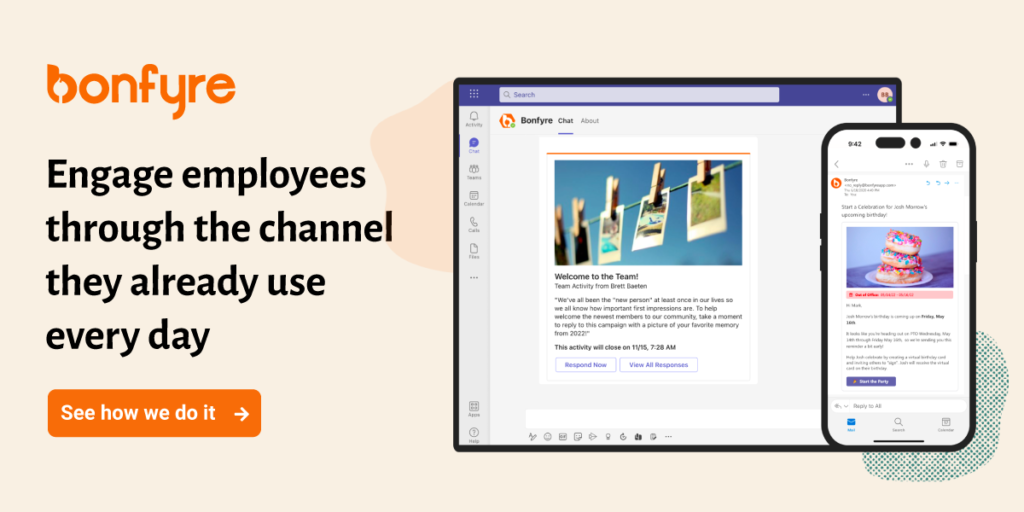Managers should be intentional with communications and recognition if they’re committed to building morale at work.
Relationships are a major driver of positive employee experiences, and the relationship we have with our managers is arguably one of the most important professional connections there is. That’s why it’s essential for managers to give support and appreciation to their employees if they want an engaged, satisfied workforce.
Managers may be confident in their capability for building morale at work, but this confidence isn’t exactly reflected in employee attitudes. A 2017 study by Ultimate Software found that 71% of managers say they know how to motivate their team, and yet only 44% of employees agree that their manager knows how to motivate them. This demonstrates a large gap in what managers think they’re providing in terms of motivation, and what employees expect them to provide.
When these types of gaps in expectations form, the quality of the employee experience falters and job dissatisfaction increases. To close the gap and successfully motivate employees, managers must focus on building morale at work through the strongest methods available: communication and recognition.
Fostering clear and open communications
It can be difficult for managers to find the right balance when it comes to communicating with direct reports. Too much can cross the line into overbearing and too little sends a clear message to employees that managers don’t prioritize their needs–or just don’t care.
To address the precarious balance necessary for employee-manager relationships, managers should be intentional in how they communicate. Regularly scheduling one-on-one and team meetings, implementing an open door policy, and doing casual check-ins with employees demonstrates that a manager has respect for employees’ feedback and time.
Making the most of feedback means applying listening skills, and for that reason, managers should make a habit of actively listening. This means focusing in on what is being said and using small signals to draw out information and encourage rapport. It also means paying attention to what isn’t being communicated. Body language and facial expressions reveal a lot about what we’re thinking and feeling, even if our words don’t match these sentiments.
And with any type of communication, transparency and honesty is a must. Managers have to be unafraid of giving constructive criticism if they truly want to help their direct reports grow and feel engaged in their roles. Of course, the qualifier “constructive” means that any criticism given is rooted in a sincere desire to help, not to put someone down and make them feel inferior. For constructive criticism to work, it should be paired with recognition to show that managers are paying attention not just to employees’ mistakes, but to their successes as well.

Building morale at work with recognition
Every employee wants to know their work has value and is appreciated. They want to be able to say they’ve made a difference at their company. And for this recognition to have the most memorable and meaningful impact, it should come from their immediate supervisors.
Employee recognition is an integral part of building morale at work that has a notable effect on the overall success of an organization. SHRM and Globoforce surveyed HR professionals to see how much impact recognition programs had in the workplace. The bulk of respondents agreed that recognition positively affected the company culture, relationships, engagement, and most importantly–employee experience.
In order to achieve the positive effects of recognition, managers must take an active role in observing and making note of employee achievements. No matter whether a manager oversees a handful of employees or a large team, it’s still necessary to keep an eye on what employees are working on, what their goals are, and what milestones they’re reaching.
Recognition can vary depending on the size of the company and its resources. Formal recognition programs provide structure and know-how to managers to make the process easier, but less formal recognition is still valuable, too. Even a simple thank you note can have a positive effect on employee morale.
Ultimately, recognition’s effectiveness is less about the form it takes than it is about frequency and specificity. Recognition should happen regularly, every week or two is a good guideline. And rather than giving out recognition just for the sake of it, managers should instead tie it back to specific events and efforts made by employees. Personalizing praise to address the strengths and talents of individuals makes recognition far more impactful.
For best results, get to know your employees
Personalization is important to consider in all aspects of building morale at work. After all, motivation is unique to everyone. Some employees are intrinsically motivated–they want to do a continuously good job within their role–while extrinsically motivated employees want to do the best in order to move on to something even bigger. And extroversion and introversion also play a role. Some employees may be energized after a big team meeting, while others may find it more helpful to work alone and reach out for feedback when they feel they need it.
Managers have to get to know employees to understand what they need to be motivated. And getting to know employees isn’t just about work outcomes. Finding out what employees care about outside of work and sparking conversations around these interests can help to build stronger, more trusting relationships.
At the end of the day, the human factor is the most important. The employee experience is a complex subject to understand primarily because humans themselves are complex. Trying to prescribe a simple, all-encompassing method of building morale at work will merely lead to assumptions and further misaligned expectations. Instead, managers should use what they know about employees to shape communications and recognition. This will demonstrate that it’s the individual that matters, and there are few things more motivational than knowing others–especially our supervisors–see us, understand us, and want to help us succeed.



 3 min
3 min




